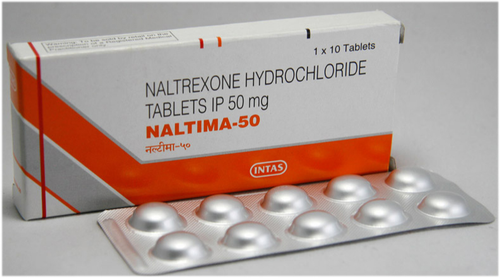Source: Thailand Medical News Nov 23, 2019 6 years, 3 months, 1 week, 1 day, 18 hours, 7 minutes ago
Medical researchers have discovered the pharmacological drug,
Naltrexone, significantly restored the function of faulty receptors associated with
myalgic encephalomyelitis, also known as
Chronic Fatigue Syndrome (
ME/CFS).

Medical researchers from the National Centre for Neuroimmunology and Emerging Diseases (NCNED), Menzies Health Institute Queensland, Griffith University led the research, which has been published in the journal
Frontiers in Immunology.
NCNED is the peak research center nationally and is internationally recognized for its world-leading research on the identification of the pathology, developing a screening test and pharmacotherapeutic intervention for
ME/CFS. NCNED researchers were the first in the world to develop the gold standard in experimental research known as patch clamp technique in immune cells to measure TRP receptor function.
Typically, the immune cells are used as a model for assessing TRP receptor function and reflect physiological activity in all body tissues expressing these receptors.
Researchers from NCNED have paved the way for the identification of the pathology of
ME/CFS and biomarker development by further reporting in several recent research papers that these receptors were faulty from ME/CFS patients when compared to healthy people.These receptors are widely found in the body and implicated in symptoms and onset of this illness. Importantly, the current research has used
Naltrexone to restore the function of these faulty receptors in the immune cells from
ME/CFS patients.
Co-author and Stafford Fox medical research professorial fellow Professor Sonya Marshall-Gradisnik told
Thailand Medical News "This world-first discovery suggests new potential pharmaco-therapeutic interventions in
ME/CFS. We continue to confirm the pathology of these faulty receptors and now we are thrilled we are moving into possible treatments for
ME/CFS."
Post-doctoral research fellow and first author, Dr. Helene Cabanas said: "We used the patch clamp technique to measure the faulty receptor function. Following
Naltrexone treatment we found the faulty receptor function was significantly improved inimmune cells from
ME/CFS patients, suggesting beneficial effects for patients."
Director of Menzies Health Institute Queensland, Professor Paul Scuffham, said “NCNED continued to lead the world in the identification of the pathology of
ME/CFS and this latest research signified possible ways forward for the
treatment of
ME/CFS patients Our aim is to continue employ the gold standard technique to investigate the pathology and possible pharmacological inventions for the benefit of
ME/CFS patients.Our research aims to translate our research findings to benefit
ME/CFS patients. The core of NCNED values is patients are our priority.We thank the Queensland Governm
ent, national granting organizations and our benefactors without whom this groundbreaking research would not be possible.
Reference: Naltrexone Restores Impaired Transient Receptor Potential Melastatin 3 Ion Channel Function in Natural Killer Cells From Myalgic Encephalomyelitis/Chronic Fatigue Syndrome Patients
Helene Cabanas, Katsuhiko Muraki, Donald Staines and Sonya Marshall-Gradisnik
Front. Immunol., 31 October 2019 | https://doi.org/10.3389/fimmu.2019.02545
